- Overview
- Symptoms
- Risks, Prevention & Screening
- Tests & Diagnosis
- Types
- Your Breast Cancer Care Team
- Treatment
- Living With Breast Cancer
- Remission & Recurrence
- Advanced Breast Cancer
- Support & Resources
- Appointment Prep
- View Full Guide
11 Foods to Avoid While on Chemo


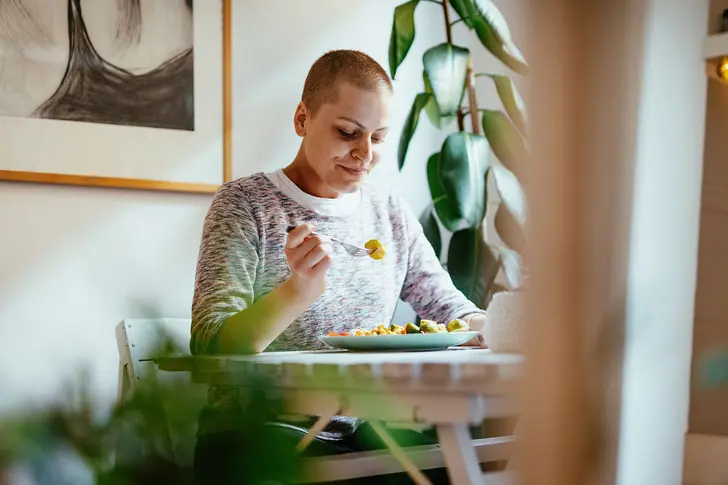
Eating well during chemotherapy isn’t always easy — especially when treatment affects your appetite — but it can make a big difference in how you feel. A chemo diet focuses on providing the nutrients your body needs to support your immune system, increase your energy levels and ease some of the side effects of chemo — like nausea or fatigue. But some foods, however, may interfere with treatment or make side effects worse. Here are a few you may want to avoid.
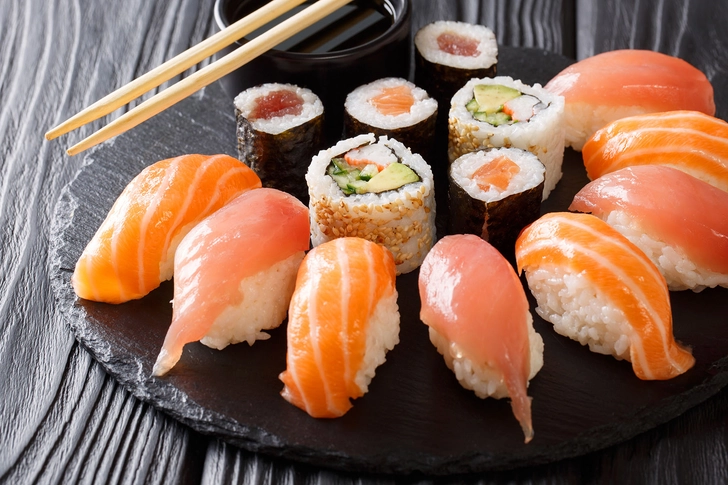
Raw or Undercooked Meats
While lean meats are a great source of protein that can support your body during cancer treatment, raw or undercooked meat — including seafood like sushi — are more likely than many other foods to contain harmful bacteria that cause foodborne illness, like salmonella or E. coli. Since the medications used during chemotherapy suppress your immune system, your body may have a harder time fighting off these infections. The good news is meats that are fully cooked to the proper temperature are safe to eat during treatment.
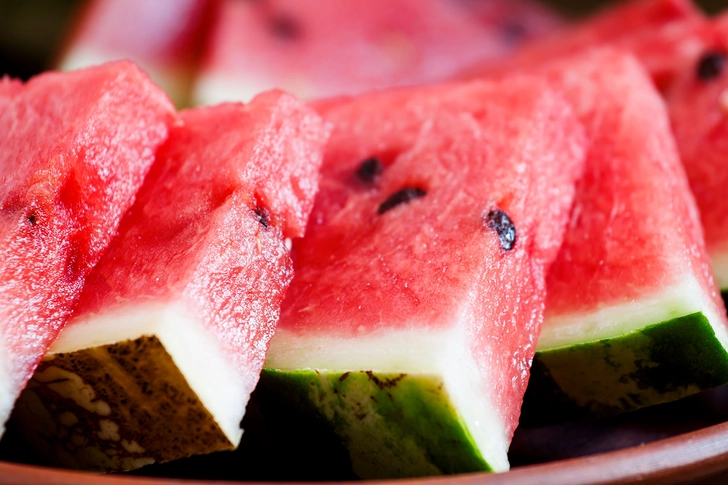
Melons
Melons are more likely than other fruits to carry harmful bacteria called listeria, which can cause a type of food poisoning called listeriosis. While listeriosis usually isn’t serious, it can be dangerous if you have a weakened immune system. If you do choose to eat melon, make sure it’s washed well before you cut it and refrigerate any leftovers right away. Also avoid pre-cut fruits.
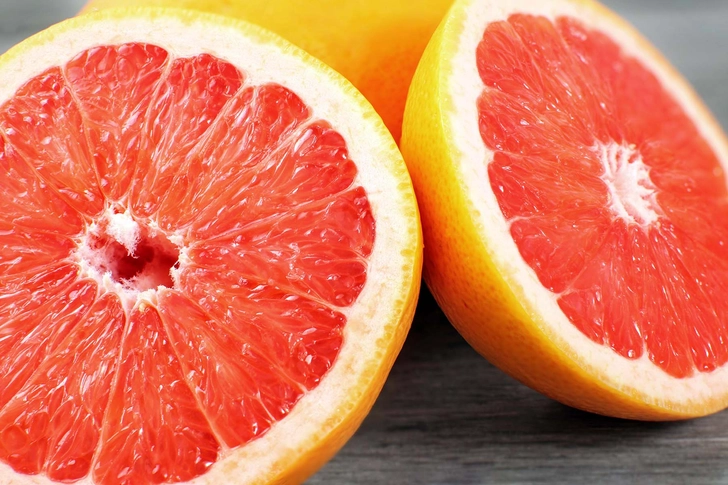
Grapefruit
Our bodies contain proteins called enzymes that help carry out many different chemical reactions — including breaking down drugs after they enter the bloodstream. Grapefruit can interfere with some of these enzymes, which may affect how your chemotherapy drugs are processed or how well they work. It’s best to avoid both grapefruit and grapefruit juice during your treatment.
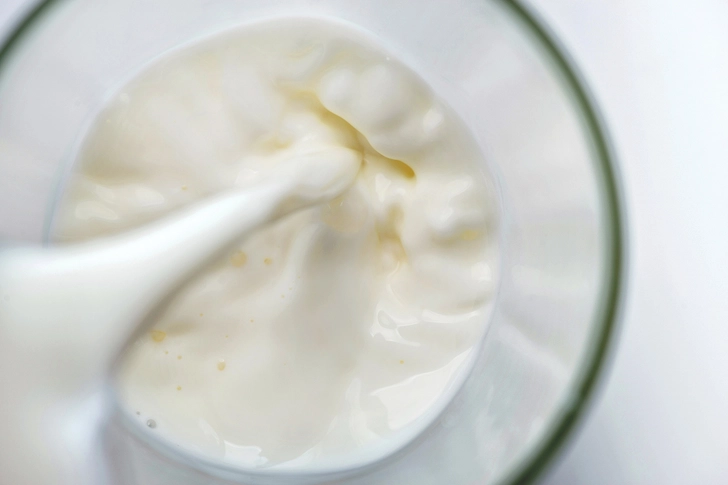
Unpasteurized Milk and Cheeses
The milk that you buy in the grocery store is pasteurized, meaning it’s been heated to a high temperature to kill harmful bacteria that can cause serious infections like salmonella and tuberculosis. If your immune system is weakened from chemotherapy, eating or drinking raw (unpasteurized) dairy products increases your chances of getting sick and makes it harder to recover if you do. Milk can be a good source of calcium, protein and vitamin D turing treatment, but raw milk doesn’t offer any extra health benefits. To stay safe, stick with pasteurized milk products.
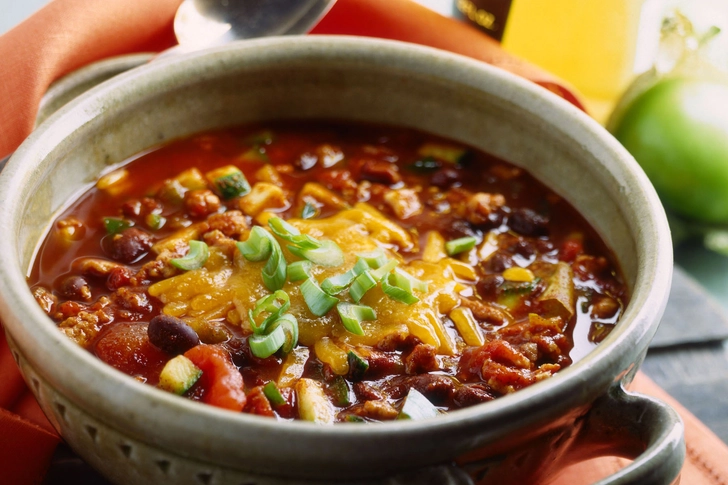
Spicy Foods
One of the most common side effects of chemotherapy is mouth sores and a sore throat, which can make eating uncomfortable or even painful. Spicy foods can irritate these sores and make them worse, so it’s best to avoid them during treatment.
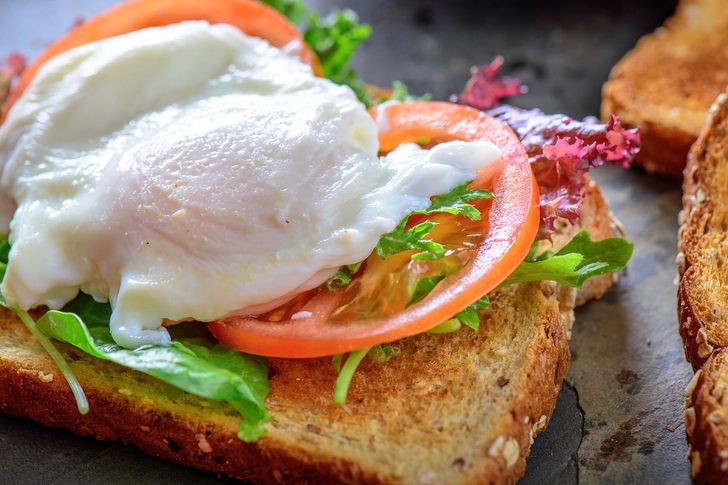
Very Hot or Cold Foods
If your mouth is sensitive, eating or drinking very hot or cold things can feel uncomfortable and may cause more irritation. Instead, try to have food and drinks that are room temperature or slightly warm — they’re usually easier to tolerate and can even be soothing.
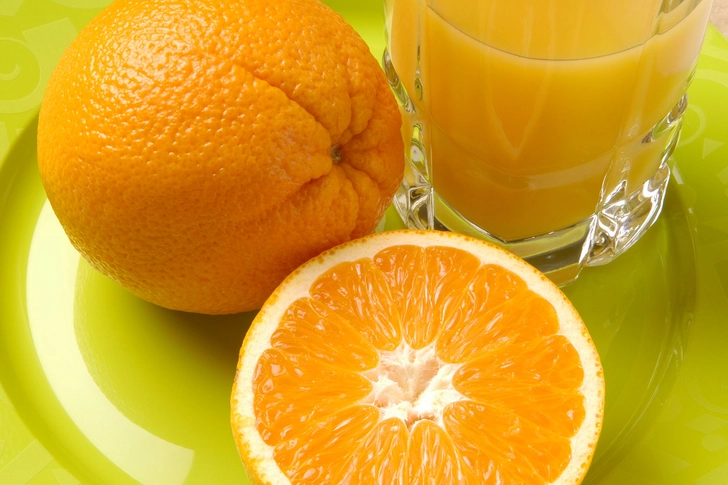
Citrus Fruits
Citrus fruits may help ease nausea during chemo, but they can make other side effects, like mouth sores, worse. If your mouth or throat is irritated, it’s best to avoid acidic food and drinks like oranges or lemonade. For nausea relief, try a gentler alternative like ginger or peppermint oil.
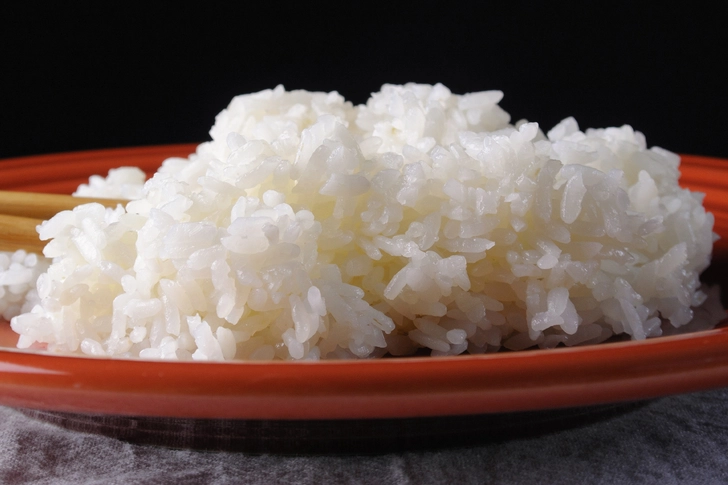
Reheated Starchy Foods
Rice, pasta, and couscous can grow harmful bacteria if they’re left to cool at room temperature after cooking. This warm, moist environment creates the perfect conditions for these bacteria to multiply, which can lead to food poisoning. While healthy people usually recover within a day or two, a weakened immune system from chemotherapy can make it harder to fight off an infection. To lower your chances of getting sick, cook only what you plan to eat or cool leftovers quickly and store them in the fridge.
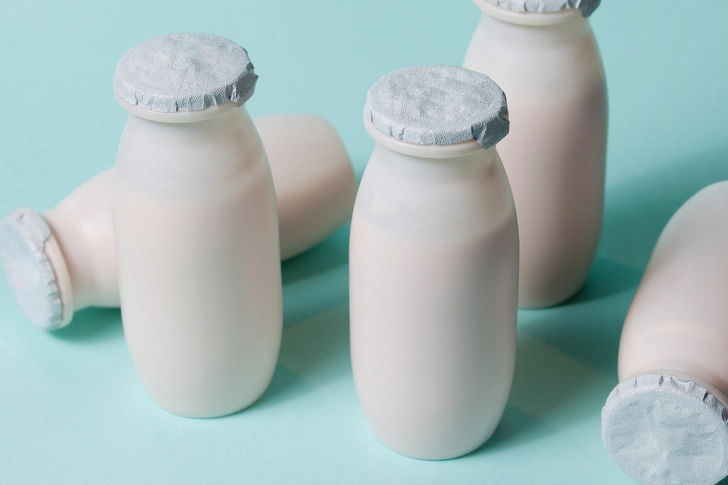
Certain Probiotic Drinks
Some probiotic drinks and yogurts, like Actimel and Yakult, contain live microorganisms — or “good” bacteria and yeast — that can support digestion and gut health in healthy people. But if your immune system is weakened by chemotherapy, these bacteria can sometimes become harmful and cause an infection. It’s best to avoid probiotic drinks, yogurts with live cultures, and probiotic supplements unless your doctor tells you otherwise.
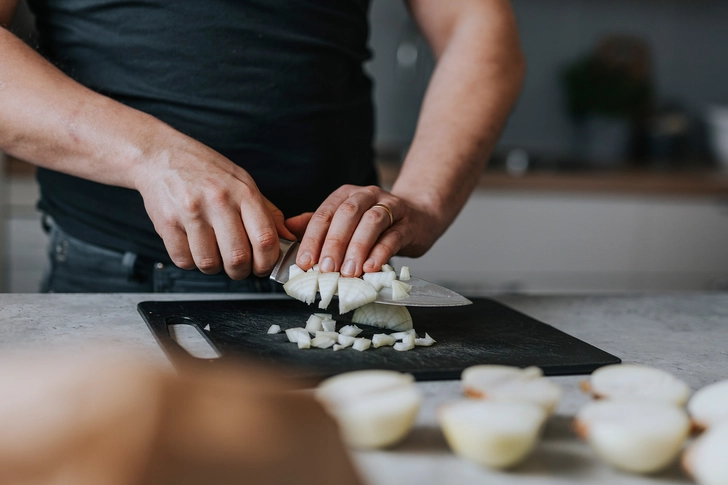
Foods With Strong Odors
If you feel nauseated after chemotherapy, try to avoid strong-smelling foods like coffee, fish, onions and garlic, since they can make your symptoms worse. Eating cold or room-temperature meals can reduce strong smells, especially if you’re in a well-ventilated room. If cooking is a challenge, ask friends or family to help out and suggest that they use a kitchen fan or cook outside to keep smells to a minimum.
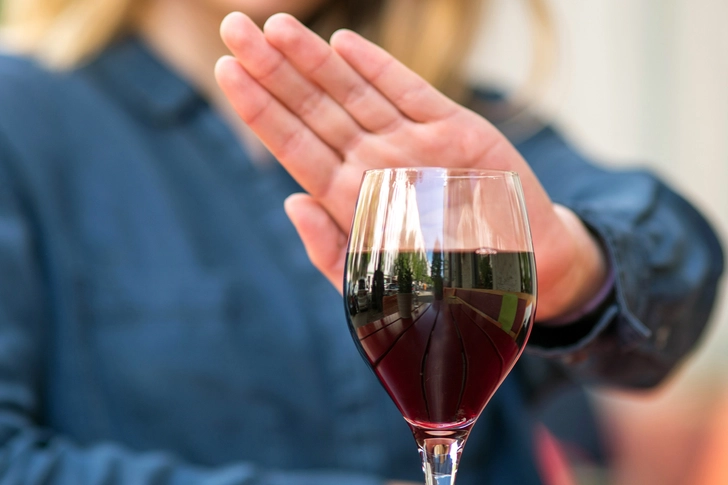
Alcohol
Alcohol is processed in your liver and kidneys, as are many of the medications used in chemotherapy. Drinking can put extra stress on these organs and may interfere with your treatment. Alcohol also causes dehydration, which can make side effects like nausea worse. It’s safest to avoid drinking during chemotherapy — especially during the first two cycles, when you’re still adjusting to treatment — but if you still want to have a drink every now and again, it’s best to get the okay from your doctor first.
IMAGES PROVIDED BY:
- E+/Getty Images
- iStock/Getty Images
- iStock/Getty Images
- iStock/Getty Images
- antpkr/Thinkstock
- The Image Bank/Getty Images
- iStock/Getty Images
- bauhaus1000/iStockphoto
- iStock/Getty Images
- ONOKY/Getty Images
- Johner Images Royalty-Free/Getty Images
- iStock/Getty Images
SOURCES:
BC Cancer Agency: “For Health Professionals Who Care For Cancer Patients”
BC Cancer: “Food Ideas to Help with Taste and Smell Changes”
Cancer Research UK: “Food and drink to avoid during cancer treatment”
Centers for Disease Control and Prevention: “How Listeria Spread: Sprouts and Melons,” “Raw Milk”
City of Hope: “Foods to Avoid While Undergoing Cancer Treatment,” “8 things not to do while on chemotherapy”
Cleveland Clinic: “Bacillus Cereus,” “Chemotherapy Side Effects,” “Enzymes,” “Listeriosis”
Foods: “Risk of Bacillus cereus in Relation to Rice and Derivatives”
Government of Canada: “Food safety tips for melons”
Hartford Health Care St. Vincent’s Medical Center: “5 Natural Ways to Help With Nausea During Chemo”
Johns Hopkins Medicine: “Cancer Diet: Foods to Add and Avoid During Cancer Treatment”
Mayo Clinic: “Chemotherapy nausea and vomiting: Prevention is best defense,” “Mouth sores caused by cancer treatment: How to cope”
Mount Sinai: “Safe eating during cancer treatment”
National Cancer Institute at the National Institutes of Health: “Nausea and Vomiting and Cancer Treatment”
NHS: “Food safety for people having chemotherapy,” “Listeriosis,” “Probiotics”
OncoLink: “Nutrition During Cancer Treatment”
University of Texas MD Anderson Cancer Center: “Is raw milk safe?” “10 things to avoid while receiving chemotherapy”
University of Utah Huntsman Cancer Institute: “What Should I Eat During Chemotherapy?”
U.S. Food and Drug Administration: “People at Risk of Foodborne Illness,” “Raw Milk Questions & Answers”